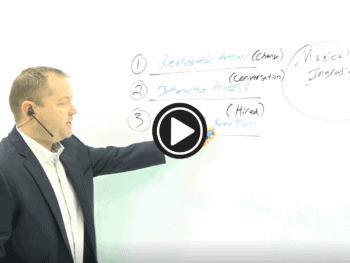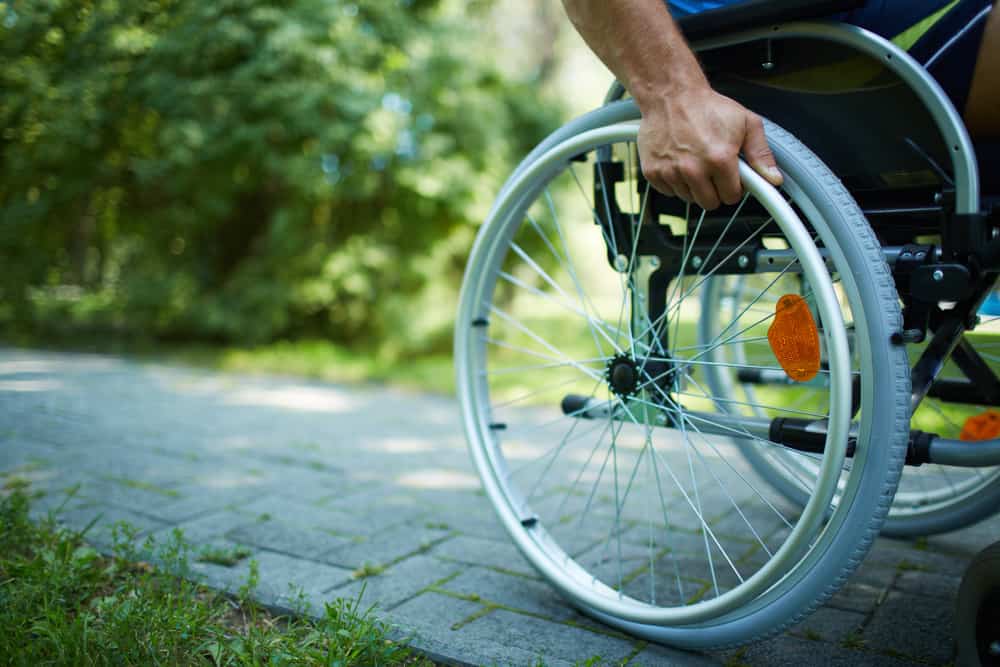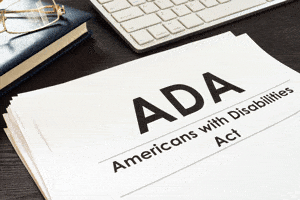As a Life Care Planner, I must interview clients who have suffered from a traumatic injury or illness. As the interviewer there are certain things one should keep in mind when interviewing someone with a disability. Here are a few tips I have picked up along the way. I hope you find them useful too.
- Start byasking if the client requires a specific accommodations such as wheelchair access, an interpreter or a quiet place free from distraction.
2. If you offer assistance, wait until the offer is accepted before proceeding. Let them tell you how to help.Click Link to Access Free PDF Download
“5-Step Sequence to Coordinate Return-to-Work with ADA Compliance”
3. Shake hands. People with prosthetics or limited hand motion will usually shake hands even if it is with their prosthesis or opposite/sound hand.
4. Always speak directly to the person and maintain eye contact. There maybe someone present to assist such as an interpreter or companion, but you should still direct your questions and comments to the disabled party rather than the others present at the time of the interview.
5. Speak in a relaxed, conversational tone. Just because someone is physically disabled does not mean they are hard of hearing.
6. Allow extra time for the interview. Some may require additional time to gather their thoughts and answer fully.
7. If your client has a hearing impairment, be sure to face the person and never cover your mouth when speaking. Also make sure that the lighting is appropriate particularly around your face so your questioning can fully experienced.
8. If your client has a visual impairment, make sure that you identify yourself and any others who may be with you. When there is a group talking, be sure to identify the party to whom you are speaking.
9. Listen attentively. If the client has difficulty speaking, be patient and allow him/her to finish rather than correcting or speaking for the client.
10. Never pretend to understand if you are having difficulty in doing so. Instead practice active listening by repeating back what you think is meant and wait for confirmation or correction.11. Always focus on the person and not the disability.
12. Remember service dogs are working dogs. Do not make eye contact, talk to or pet the dog as it is distracting for the animal and owner and can result in bad habits.
13. Remember assistive devices are part of the client’s body space. Never lean or hang onto a person’s wheelchair, walker or other device.
Author Victoria Powell is the President of VP Medical Consulting, LLC located in Central Arkansas. VP Medical Consulting is a nurse consulting firm providing services to employers, insurance companies, attorneys and the general public. Services include case management, life care planning, legal nurse consulting, ergonomics and patient advocacy. Ms. Powell holds specialty certifications in a variety of nursing specialties. She can be reached through the web at http://www.vp-medical.com
“FRAUD PREVENTION” PODCAST click here: http://www.workerscompkit.com/gallagher/mp3
By: Private investigator with 25 years experience.
We accept articles about WC cost containment.
Visit Our Websites:
Do not use this information without independent verification. All state laws vary. You should consult with your insurance broker about workers’ comp issues.
©2009 Amaxx Risk Solutions, Inc. All rights reserved under International Copyright Law.





















